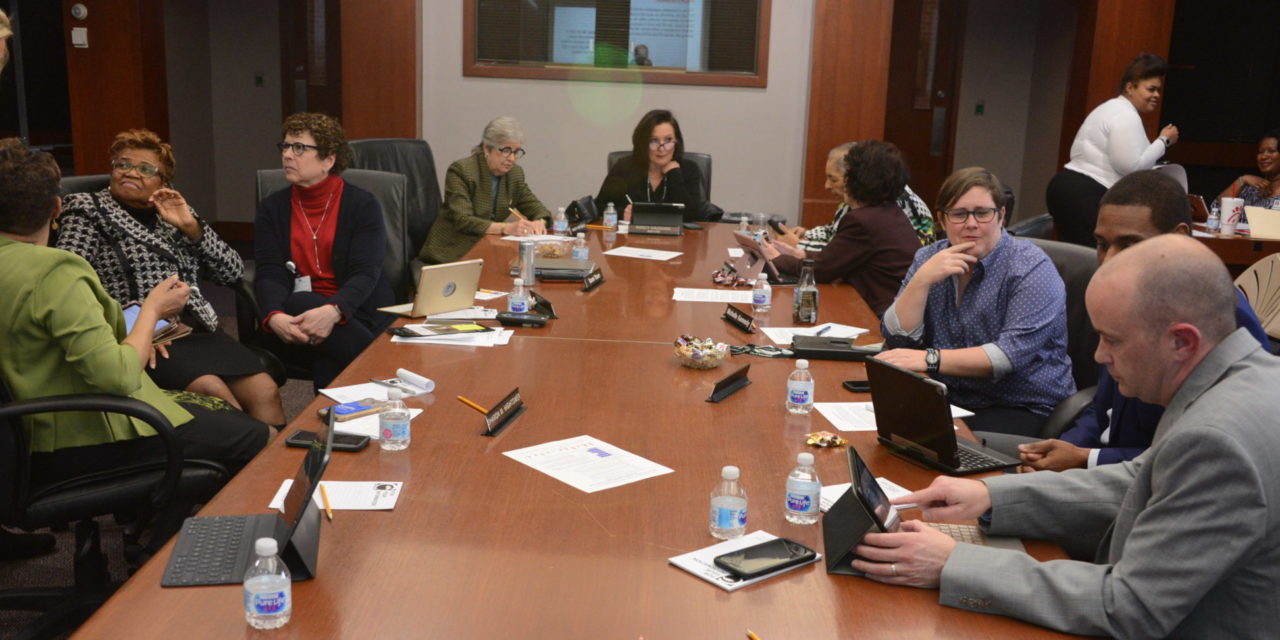Assistant City Manager Larry Davis gave the City Council a mid-year update on the financial status of the city government at the Tuesday, Feb. 18 work session, and although Davis never mentioned the words “tax increase,” his report seemed to be laying the groundwork for one.
In June 2019, the City Council raised property taxes by 3 cents, and in 2017 there was a stealth property tax increase of 2.11 cents. It was a stealth increase because it was a revaluation year in which the tax value of property was increased, and to keep the tax rate flat – meaning the average property owner would pay the same amount in taxes as the previous year – the City Council would have had to lower the rate by 2.11 cents. But the rate was kept the same, which means the city coffers had the same amount of additional money flowing in as if the City Council had raised taxes by 2.11 cents.
Each penny on the property tax rate brings in about $2.8 million in revenue.
The report by Davis wasn’t dire, but the trends indicate that either the City Council will have to cut spending or raise taxes. This council has shown no inclination to cut spending, but does have a history of raising taxes.
The key point was that from 2014-2015 to 2018-2019, the average revenue increase in the general fund has been 2.34 percent and the average rate of increase in expenditures has been 2.72 percent. So spending is increasing faster than revenue is increasing.
The average growth in the value of property in the city since 2015-2016 has been almost 1.6 percent a year (not included the revaluation year), but Davis said because of a number of factors the city staff believes that will be closer to 1.2 percent in the current year.
Councilmember Justin Outling noted that the council had been told that the city’s unallocated fund balance “was far too small” and that staff had a plan to increase it. Outling asked if the fund balance was being increased. The city’s fund balance is roughly the equivalent of a person’s savings account or emergency fund.
Davis said that the fund balance was actually going down, not up.
City Manager David Parrish said, “The state requires us to have 8 percent and we have 9 percent.” Parrish adding for a city the size of Greensboro that 8 percent, 9 percent or 10 percent was sufficient.
The best part of the presentation by Davis was when he talked about the current fiscal year, which is 2019-2020, abbreviated 19-20, and pronounced 1920, which when most people hear it causes a little mental blip and takes a second to decipher.
Councilmember Sharon Hightower has no trouble blurting out what’s going through her head, so the first time Davis said, “The year 19-20.” She said, “What?”
It was probably the same thing at least half the people in the room who don’t deal with the fiscal year on a daily basis were thinking, but everyone else kept their mouths shut.


we are paying enough in tax’s now what you need to do is start making these people riding around with expired tags and start making them pay there tax’s . we are tax’s to much and others or paying nothing and buy the way stop throwing our tax money away on all this dum stuff you city councilman keep coming with we are sick of our tax money going down the drain.
If 19/20 is giving a little mental blip, imagine the confusion that what 20/21 will cause.
“Now that we’re in 20/21…” In July 2020…